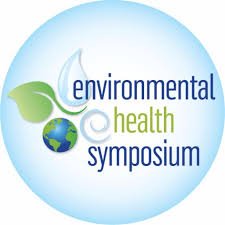
- This event has passed.
Eighth Environmental Health Symposium 2020
April 3, 2020 - April 5, 2020

Immunotoxicity: The Intersection between Toxic Exposure, Infectious Disease, and Autoimmunity
EHS 2020 is poised to unveil how environmental exposure to toxins and toxicants can result in immune-damaging effects creating the perfect storm for the development of complex chronic infections, viral illnesses, and autoimmunity.
This conference will address:
-
What clinicians are missing in patient evaluations that may be a barrier to their healing from chronic conditions
-
How you can identify exposures to common toxicants (metals, pesticides, herbicides, persistent organic pollutants) and biologic toxins (produced by bacteria, mold, etc.,) that contribute to immunotoxicity in your patients
-
The newest recommended testing strategies for these damaging exposures, how to understand the relevance of test results, and how to effectively address test results in treatment protocols.
Why this conference is important.
Candida auris (the CDC’s #1 emerging infectious condition of 2018), chronic Lyme disease, MRSA, MARCONS, Clostridium difficile, CRE (Carbapenem-resistant Enterobacteriaceae) , and 14 other antibiotic-resistant infections challenge us to understand what has happened to human immunity. While overuse of antibiotics explains some of the problem, other challenges to human immunity go unrecognized.
The following toxicants (found in 75-100% of representative samples of the US population) have significant effects on the gut microbiome and/or immune response:
-
Triclosan (found in clothing, personal care products, cutting boards, blankets, food storage containers)
-
Pesticides and herbicides such as atrazine
-
Perfluorinates (non-stick/non-stain compounds)
-
PCBs (polychlorinated biphenyls) in fish, butter, meat: organic or not
The EHS 2020 educational program will be focusing on the role of these pollutants in altering immune competence and will unveil effective strategies to address these toxin and toxicant exposures in your patients.
We are the only conference to provide this type of detailed educational information. Clinicians will take away valuable information and useful therapeutic tools to aid in effectively diagnosing these exposures in your patients.
Each CME-approved lecture will feature a one-page summary containing a clinically relevant synopsis of the speaker’s key points and useful instructions for practitioners.
